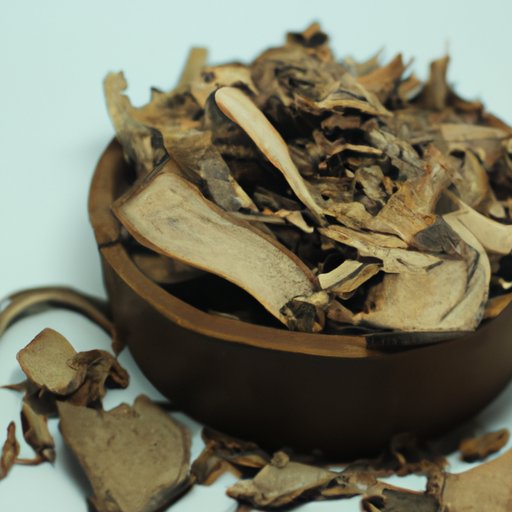
I. Introduction
A sore throat is a common symptom of various health conditions, including cold, flu, and allergies. It can be uncomfortable and at times, even painful to swallow, speak, or breathe. This article aims to provide patients with the necessary information and advice on the best ways to treat their sore throat.
II. Top 5 Medications for Soothing a Sore Throat
Various medications are available over-the-counter or by prescription for treating sore throat. This section lists the top five medications, along with their benefits, possible side effects, and recommended dosage.
The top five medications include:
- Acetaminophen: known to reduce fever and relieve pain, it is available over-the-counter. Recommended dosage according to weight and age.
- Ibuprofen: similar to acetaminophen in terms of benefits and availability. It is not suitable for people with stomach problems.
- Lozenges: containing a numbing agent like benzocaine, can provide relief for a short time. They come in various flavors and can provide temporary relief. Watch for overdose.
- Throat sprays: with the same effect as lozenges, can provide temporary relief. Watch for overdose.
- Corticosteroids: available by prescription are anti-inflammatory agents used to reduce swelling and pain.
When choosing the most appropriate medication, it is important to consider individual needs, possible side effects, and medical history. Always read information and directions included in the medication box. If in doubt, ask your doctor for advice.
III. Natural Remedies vs. Pharmaceutical Medications: What is the Best Way to Treat a Sore Throat?
When it comes to treating sore throat, natural remedies are becoming increasingly popular. In this section, we compare and contrast natural remedies with pharmaceutical medications for treating sore throat. We discuss the pros and cons of each approach and offer advice on the best way to choose the right treatment for each individual.
Natural remedies include:
- Apple cider vinegar and honey: prepared by mixing a tablespoon of apple cider vinegar and a tablespoon of honey in warm water, can help alleviate sore throat symptoms.
- Gargling with saltwater: a simple yet effective remedy that can help relieve pain and swelling. Mix a teaspoon of salt in warm water, gargle, and spit. Repeat a few times a day.
- Herbal teas: teas containing ginger, turmeric, peppermint, or licorice root, can help soothe inflammation and relieve pain.
Pharmaceutical medications, however, are clinically tested, rigorously reviewed and approved by health regulatory boards. They are customized to treat specific symptoms and can provide immediate relief of symptoms. Conversely, natural remedies will always work slower and may not provide immediate relief.
IV. Sore Throats and Antibiotics: What You Need to Know
Antibiotics are not always the answer to treating sore throat. In this section, we explain when antibiotics are necessary for treating sore throat, why over-prescription of antibiotics is a problem, and the potential consequences of misusing antibiotics.
Antibiotics are only necessary when the sore throat is caused by bacteria, which is uncommon. Antibiotics do not work against viruses, and using them for treating viral infections such as a sore throat is counterproductive as most bacteria will develop resistance, causing problems in the future. Furthermore, over-prescribing antibiotics can cause an increase in antibiotic-resistant infections.
V. When to See a Doctor for a Sore Throat: A Guide for Patients
While most sore throats will go away on their own or with self-care remedies, some cases may require medical attention. This section explains when a sore throat might require medical attention, the signs and symptoms to watch for, and what to expect during a medical evaluation.
You should see a doctor if you experience any of the following symptoms:
- Sore throat lasting longer than a week
- Difficulty swallowing or breathing
- Earache, headache, or fever
- Rash or swollen glands
- Blood in saliva or phlegm
During a medical evaluation, your doctor will examine your throat, take a throat culture if needed, and determine the best course of treatment depending on the cause of the sore throat.
VI. Sipping on Soup and Honeysuckle Tea: An Overview of Traditional Chinese Medicine Remedies for Sore Throat
Traditional Chinese Medicine (TCM) offers various remedies for treating sore throat. This section introduces readers to three popular TCM remedies for a sore throat, including medicinal soup, honeysuckle flower tea, and lozenges.
Medicinal soup: a soup made with medicinal herbs and ingredients such as ginger, scallion, and garlic, can help reduce inflammation and soothe a sore throat. Honeysuckle flower tea as a natural antibiotic, and TCM lozenges traditionally work well. TC Mremedies take into account the person’s unique body constitution, therefore, seek expert advice from a qualified TCM practitioner.
VII. Conclusion
Sore throat can be an uncomfortable symptom of various health conditions. With the information and advice provided in this article, patients can explore various ways to treat a sore throat effectively and safely. Whether through natural remedies, pharmaceutical medications, or traditional Chinese medicine remedies, it is important to consider individual needs, possible side effects, and medical history.
The most vital step is to be informed on when to see a doctor, the right medication for you, and when to seek the advice of an expert in any traditional remedies. Ultimately, you can be proactive as an individual and work towards a healthy and comfortable life.





